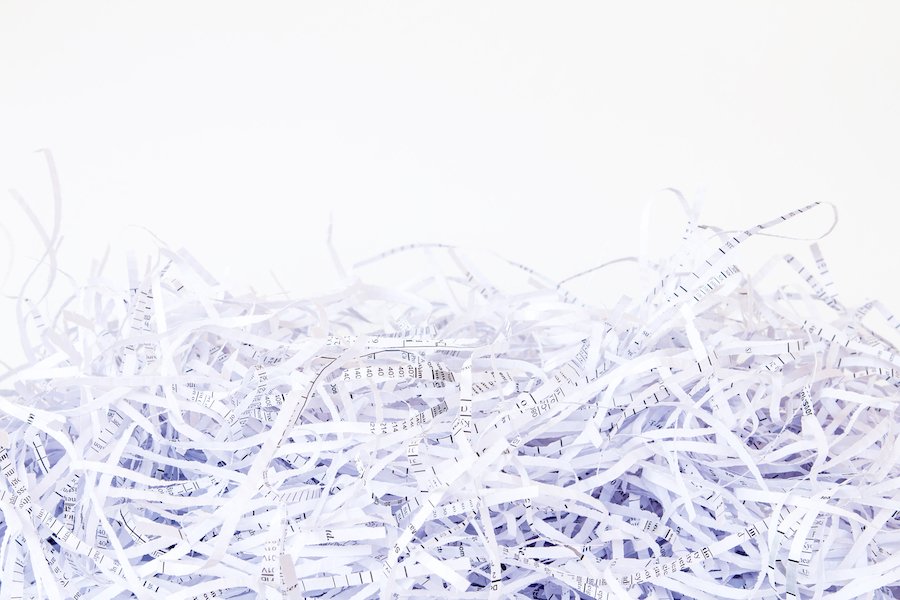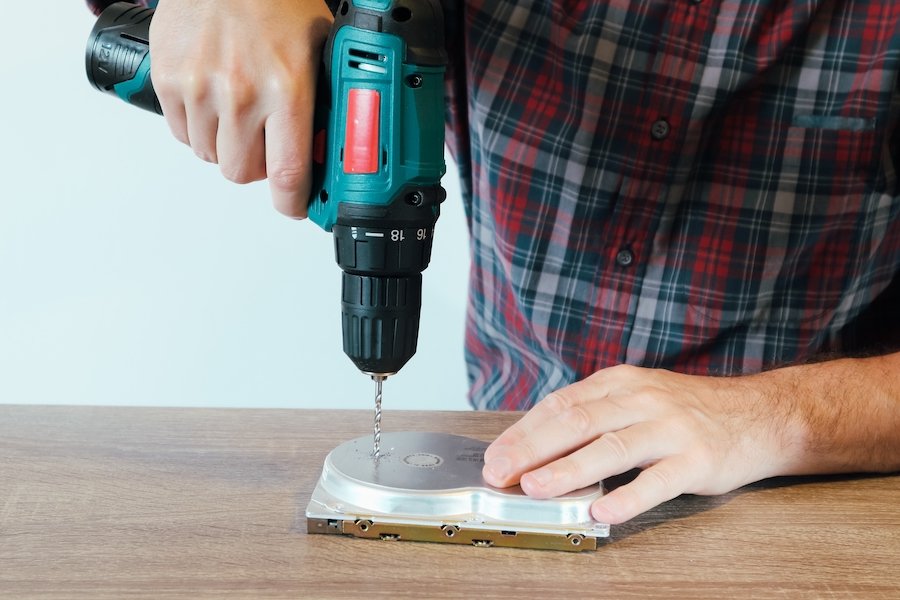Nevada Revised Statute § 199.220 makes it a crime to purposefully destroy, alter, or conceal evidence in order to hide a felony, protect a person involved, or obstruct the law. Destroying evidence is a gross misdemeanor punishable by up to 364 days of jail time and/or $2,000 in fines.
The language of the statute reads as follows:
Every person who, with intent to conceal the commission of any felony, or to protect or conceal the identity of any person committing the same, or with intent to delay or hinder the administration of the law or to prevent the production thereof at any time, in any court or before any officer, tribunal, judge or magistrate, shall willfully destroy, alter, erase, obliterate or conceal any book, paper, record, writing, instrument or thing shall be guilty of a gross misdemeanor.
In this article, our Las Vegas criminal defense attorneys discuss everything you need to know about NRS 199.200. Click on a topic below to jump directly to that section.
1. Definition
Nevada law prohibits willfully destroying, altering, or hiding any document or thing with the intent to either:
- conceal the commission of any felony, or
- protect or conceal the identity of any person committing the felony, or
- delay or hinder the administration of the law, or
- prevent the production of the person
in any court or tribunal.
In short, trashing or falsifying evidence to obstruct justice is a crime in the state of Nevada.1
Example: Jenny uses a stolen check book to purchase several thousands of dollars worth of items. Then Jenny throws out all the sales receipts and remaining checks to throw law enforcement off the scent. Since Jenny was intentionally destroying evidence of her felony theft crime, she could face charges for destroying evidence (in addition to felony theft).

NRS 199.220 makes it a gross misdemeanor to destroy evidence of a felony.
2. Penalties
Intentionally destroying evidence in Nevada is a gross misdemeanor carrying a maximum sentence of:
- 364 days in county jail and/or
- $2,000 in fines.2
The D.A. may be willing to plea bargain the charge down to a misdemeanor. This maximum sentence would be:
- 6 months in county jail, and/or
- $1,000 in fines.
The judge may permit you to perform community service in lieu of fines.
3. Defenses
Here at Las Vegas Defense Group, we have defended literally thousands of people charged with crimes such as destruction of evidence. In our experience, the following three defenses have proven very effective with prosecutors, judges, and juries.
- The police performed an illegal search in the case: Police may not get a search warrant without probable cause to believe a crime had been committed. If the police acted without probable cause, our law firm would file a motion to suppress asking the court to disregard any evidence uncovered as a result of the illegal search. If the court grants the motion, your case will be significantly strengthened. Then the prosecution may be forced to dismiss the charge.
- The evidence was not relevant to the case: You cannot violate NRS 199.220 by destroying objects or writings that have no connection to the commission of a felony or a legal proceeding. We would try to show the court that the trashed materials had no bearing on felonious conduct or a civil or criminal case. If prosecutors realize your actions do not affect the case, your charge should be dropped.
- You did not act with criminal intent: Accidentally throwing out evidence is no crime. It is also no crime to intentionally throw out items you had no idea were related to a case. At trial, the prosecution must prove beyond a reasonable doubt that you meant to conceal a felony or to obstruct justice. As long as there is an innocent explanation for why you destroyed the documents at issue, criminal charges should not stand.
Example: Tom is charged with forgery. He takes all his relevant documentation in his house to FedEx Office and asks the clerk to shred it. Here, the clerk committed no crime because he had no idea the documentation could be evidence in a criminal case.
4. Record sealing
A Nevada conviction for destroying evidence can be sealed two years after the case closes. Though if your case gets dismissed, there is no waiting period: You are free to petition for a record seal immediately.3
Once your criminal record gets sealed, past convictions and arrests no longer show up on background checks. Plus you can legally say under oath or in job interviews that you do not have a criminal record (with some exceptions).
5. Related crimes
- NRS § 197.090 – Interfering with a Public Officer
- NRS § 197.190 – Obstructing a Public Officer
- NRS § 199.010-.030 – Bribing Judges or Jurors
- NRS § 199.120 – Perjury & Subornation of Perjury
- NRS § 199.210 – Offering False Evidence
- NRS § 199.230 – Dissuading or Intimidating a Witness
- NRS § 199.240-.250 – Witness Bribery
- NRS § 199.340 – Contempt
- NRS § 205.090 – Forgery
Also see our related article on subpoenas for witness testimony/depositions in Nevada.

Lack of criminal intent is a common defense to charges of destroying evidence.
Additional reading
For more in-depth information, our Las Vegas, NV/Clark County criminal defense lawyers suggest you refer to these scholarly articles:
- Evidence Tampering – Duke Law Journal about how destroying evidence affects litigation and the legal system.
- Tampering with Evidence – The Liability and Competitiveness Myth – American Bar Association Journal.
- Evidence Destroyed, Innocence Lost: The Preservation of Biological Evidence under Innocence Protection Statutes – American Criminal Law Review.
- Truth and Uncertainty: Legal Control of the Destruction of Evidence – Emory Law Journal.
- Spoliation of Evidence: Defining the Ethical Boundaries of Destroying Evidence – American Journal of Trial Advocacy.
Legal citations
- NRS 199.220. See also re. state destruction of evidence: State v. Hall (1989) ; Mortensen v. State (1999) .
- Same.
- NRS 179.245. NRS 179.255.

